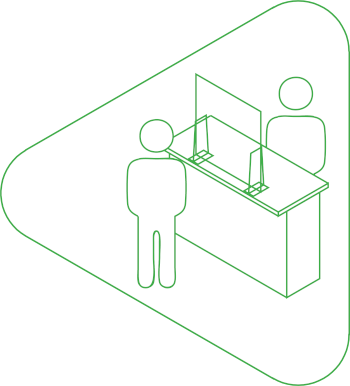Prevention
Title:
Covid-19 protective barriers
Short description:
Creating Plexiglass protective barriers for physical protection of individuals who work in places with high fluctuation of people.
Author:
All In One Business Center doo
Requested Budget:
60.000 USD
Time frame:
6 months

Problem: During the COVID-19 virus pandemic almost all the affected countries suffered from the lack of personal protection equipment and its procurement was very hard due to high demand. This problem especially affected medical staff, as well as all the other service providers who are in direct contact with large number of people every day. Majority of the workers in supermarkets and pharmacies were not appropriately equipped, mostly just with single-use masks which they were not able to change on recommended bases (every 2 hours).
Solution: The project aims to produce 480 Plexiglas protective barriers in 6 months and donate them to the groups that face high risk during the COVID-19 pandemic. The use of these barriers would be of particular importance in shops and pharmacies where there is a high fluctuation of people. The barrier physically protects employees from direct contact with customers and prevents the transmission of the virus to the worker behind the counter, as well as passing the virus to their families at home. By significantly reducing the possibility of infecting people on the front line, the barriers help the entire society to fight the virus. Plexiglass barrier maintenance is done with regular hygiene products and is resistant to alcohol-based disinfectants. Following the production of the first series, the product would be certified. Planned activities in the proposal include procurement of the materials, production and distribution of the product. The dimensions of the barriers are 750х500 mm and they are 4-5 mm thick, and they can be produced relatively fast (4 per day).
Additional info: The developed prototype has already been tested. Protective barriers are likely to become a standard product needed for sales personnel in places such as supermarkets. Hence, the project is addressing a long-term need, while the solution is practical and easy-to-deploy.